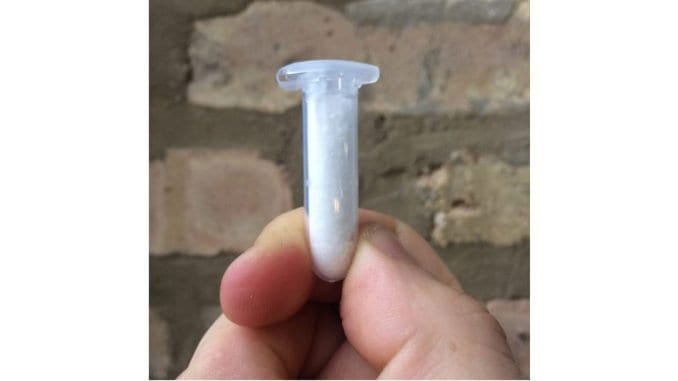
Coffee is over 98% water, and most water from your sink isn’t ideal for brewing. The folks at Third Wave Water have designed a way for you to achieve the perfect water for brewing coffee at home.
BY JOSHUA DUSK-PEEBLES
SPECIAL TO BARISTA MAGAZINE
One of the geekiest conversations happening in the coffee world right now has to do with the mineral content of the water we use for brewing. With so many variables focused on just the coffee itself, we’ve decided to turn toward even another one by looking at the exact details of our liquid ally. Truly, this intentionality is long over due, as the vast majority of what we are drinking when we drink coffee is water. Not only that, but the minerals in our brewing water play a huge part in determining how much of each chemical compound in the dry coffee ends up in the final beverage, which has a huge impact on how sweet, or sharp, or bitter, or acidic, or flat the drink tastes.
Most shops have done a good job of dealing with this by purchasing and maintaining sophisticated filtration systems, oftentimes optimized for the specific tap water found in that city or neighborhood. But this is not nearly as easy for those of us hoping to make coffee at home, let alone for our customers who want to be able to brew the coffees we sell to them in a way that makes them taste as good as they taste in the shop.
And this is where Third Wave Water comes in. Taylor Minor of Telemetry Coffee Roasters in Cedarville, Ohio and his business partner Charles Nick have created a product that allows anyone to turn distilled water into SCAA spec brewing water.

The way that they are doing it is by making small vials of readily soluble powdered minerals that can be added to a gallon of distilled water in order to have the whole gallon become ~140tds (total dissolved solids) with 50-60ppm (parts per million) calcium, 70-80ppm magnesium, and 10-15ppm sodium. Taylor has put a lot of thought into exactly what minerals he uses to get these numbers because some compounds dissolve easier than others and some commonly utilized minerals can even be slightly corrosive. For these reasons, Taylor chose to use calcium citrate instead of calcium chloride.
The minerals in water, and their corresponding ratios, are essential to the taste of coffee. Not all water is created equal–the mineral components of some tap waters (let’s say Chicago versus Los Angeles) are very different, and will extract different flavors from coffee. As Maxwell Colonna-Dashwood made famous in his 2014 WBC performance, the minerals we care about are calcium, magnesium, and what is called a bicarbonate or a buffer (the sodium in the case of Third Wave Water). Calcium and magnesium have ‘binding energy,’ which means they can hold onto flavors in ground coffee, so when your coffee is brewed with the right amount of each, your final cup will taste balanced. Coffees brewed with water that has low binding energy (or, for a term more familiar, soft water) tends to taste sharp and weak, whereas coffees with high binding energy tend to taste heavy and dull.
Of course, if you prefer a different concentration of minerals, or just want to experiment with various options, it is relatively easy to calculate and dilute the capsule with more water. For example, mixing the minerals into 2 gallons would give you ~70tds with 25-30ppm calcium, 35-40ppm magnesium, and 5-7ppm sodium.

According to Taylor, he has gotten such good feedback from those who have tried Third Wave Water, that he and Charles are even exploring the possibility of creating larger cartridges that would allow shops to utilize the product with an RO (reverse osmosis) system. For now, if you would like to try the capsules for yourself, you can head over to www.thirdwavewater.com and order a pre-production sample 10 pack for $10.
 ABOUT THE AUTHOR
ABOUT THE AUTHOR
Joshua Dusk-Peebles is a lifelong explorer, experimenter, and learner. He enjoys nothing more than sharing what he is learning with other people. When he was young, he would get legitimately angry if his dad forgot to let him smell the coffee every time a new bag was opened. Unfortunately, the much less pleasant corresponding beverage kept him away from coffee until his 30s, when he smelled and then tasted a well-handled natural process Ethiopia Yirgacheffe, and everything made sense again. He plans on getting his own new-born son started much sooner. He can be reached at dusk.peebles@yahoo.com or found online at duskcoffee.com.

